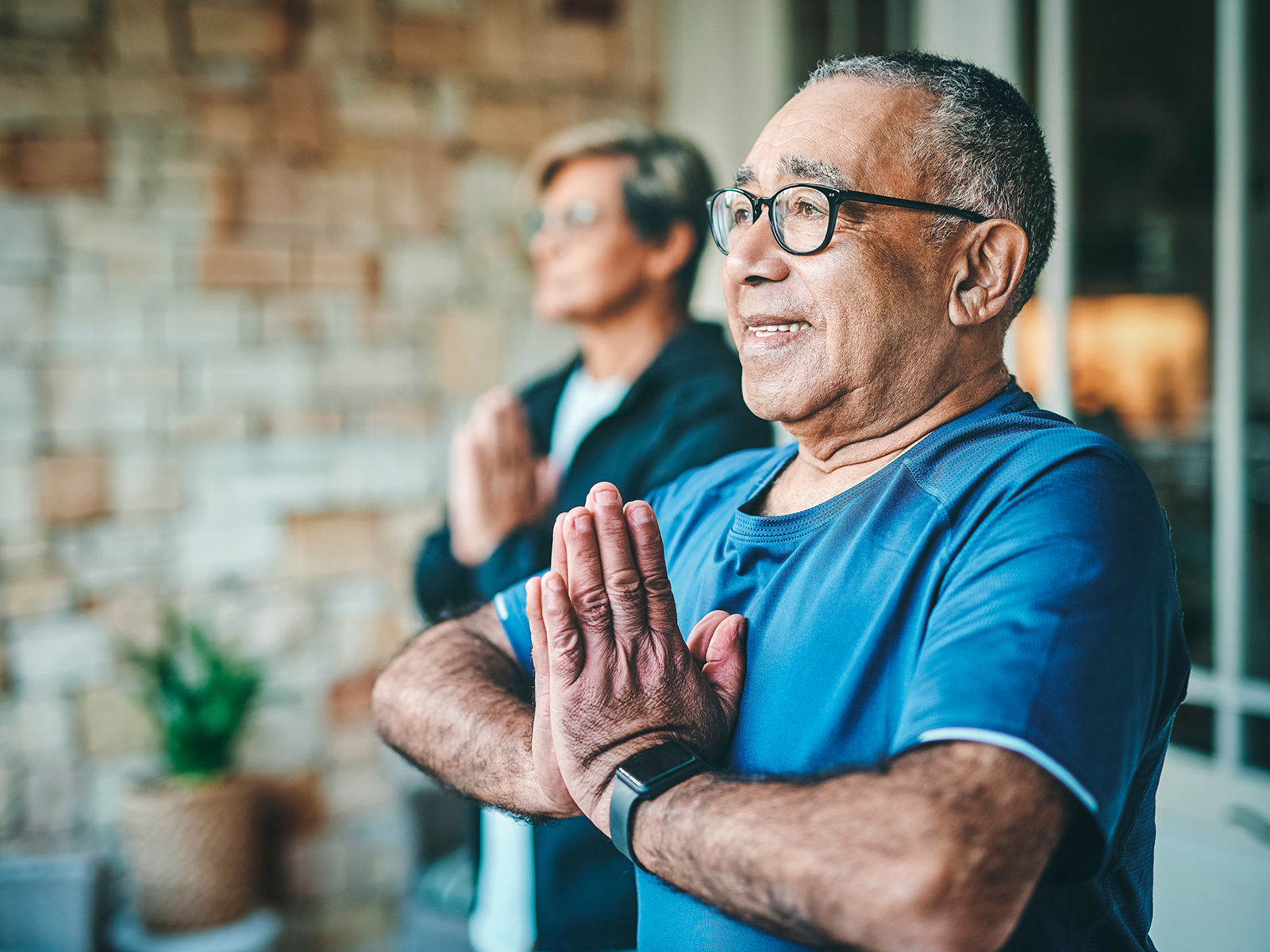Did you know Asians and Asian Americans tend to live longer than many other groups? One reason may be a cultural emphasis on staying active, both physically and mentally, throughout life.
Ancient wisdom for modern adults
For centuries, practices like yoga, tai chi, meditation and qigong have been part of everyday life across Asia. What’s amazing is how many older adults continue exercising well into their senior years. They’re not only staying healthy for themselves – they’re staying active so they can keep contributing to their families and their communities.
Whether you’re looking to reduce stress, improve balance or feel a bit more centered, give these time-honored traditions a try. They’re gentle, effective and can be adapted for just about anyone, regardless of age or physical ability.
Meditation
Rooted in many Asian traditions, meditation isn’t about emptying your mind completely (which is impossible anyway). It’s about noticing your thoughts without getting caught up in them. It’s about being present, focusing on your breath and detaching from your thinking mind. Even 10-15 minutes daily can help improve sleep, mood and even lower blood pressure. The more you practice, the better you get.
Yoga
This 5,000-year-old Indian practice blends movement, breathing and meditation into one package. From energetic vinyasa flow classes to gentle chair yoga, there’s something for everyone. Regular practice has been shown to ease joint pain, build strength, improve flexibility and reduce stiffness. Remember, you don’t need to be flexible to start – yoga meets you where you are.
Qigong
Often described as “meditation in motion,” China’s ancient system of qigong (pronounced “chee-gong”) focuses on flowing movements paired with mindful breathing. Practitioners believe qigong helps manage the flow of qi (energy) through the body’s meridians or energy pathways.
Unlike more structured practices like tai chi, qigong movements are often simple and can be more easily adapted for different physical abilities. Qigong may help improve circulation, mental clarity and emotional balance. It’s a perfect entry point if you’re new to mind-body practices.
Tai chi
Emerging from qigong principles and martial arts foundations, tai chi features choreographed sequences of flowing, continuous movements called “forms.” Slow, deliberate motions are performed with awareness and synchronized with breathing. Some forms involve balanced weight shifting from one leg to another.
Tai chi is especially good for seniors because it’s easy on the joints while improving balance, coordination and flexibility – all crucial for preventing falls. The focused movements also help reduce stress while sharpening your mind.
Give ancient wisdom a try
Whether you choose meditation, yoga, qigong or tai chi, these practices do more than keep your body fit – they nurture your mind and spirit too.
At Holiday by Atria, we believe wellness involves the whole person. That’s why we love introducing our residents to meaningful traditions like these from around the world.
You might also like
Want to learn more about life at Holiday?
